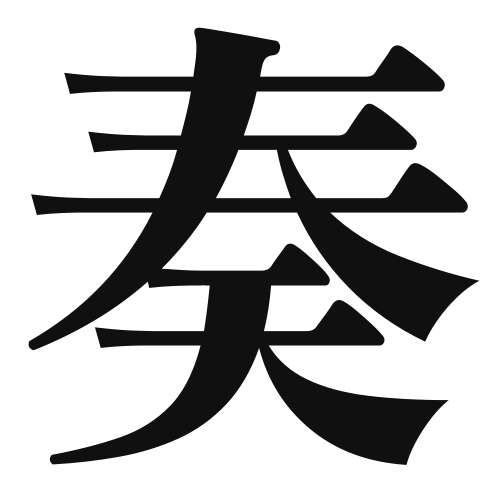1. Overview of Meaning
The kanji 奏 (pronounced “sou”) means “to play music” or “to perform.” It is often associated with musical performance and the act of expressing oneself through music.
2. Formation and Radical
Formation: The kanji 奏 is a phonetic-ideographic character (形声文字). It combines the meaning of “to play” with a phonetic component that suggests its pronunciation.
Radical: The radical for 奏 is 弓 (meaning “bow”), which relates to the act of playing string instruments.
3. Examples of Usage
Common Words and Phrases:
- 演奏 (ensou) – performance, especially of music
- 奏楽 (sougaku) – musical performance
Example Sentences in Daily Conversation:
- 彼はピアノを奏でるのが得意です。 (Kare wa piano o kanaderu no ga tokui desu.) – He is good at playing the piano.
- コンサートで素晴らしい演奏を聴きました。 (Konsaato de subarashii ensou o kikimashita.) – I heard a wonderful performance at the concert.
4. Synonyms and Antonyms
Similar Kanji:
- 演 (en) – to perform, which is more general and can refer to various types of performances, not just music.
- 楽 (gaku) – music, which focuses more on the concept of music itself rather than the act of performing.
Antonyms:
- 静 (shizu) – quiet, which represents the absence of sound or music.
5. Cultural and Historical Background
Relation to Japanese Culture: The kanji 奏 is deeply rooted in Japanese culture, where music plays a significant role in traditional ceremonies and celebrations. It is often associated with the arts and is a common term in classical music contexts.
Proverbs and Idioms: While there may not be specific proverbs that include 奏, the concept of music and performance is often celebrated in Japanese literature and poetry, highlighting the beauty of expression through sound.
